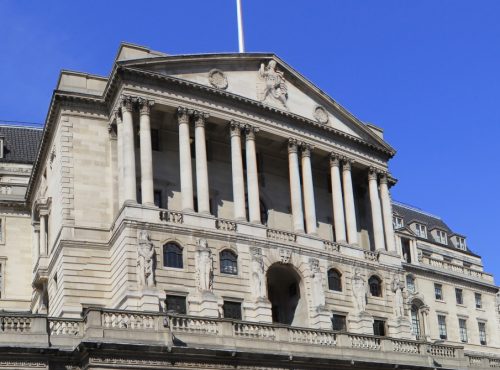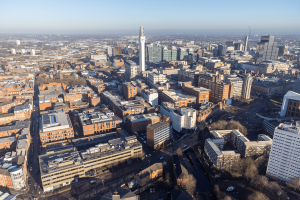Bank of England freeze interest rates at 5.25 per cent

The Bank of England has decided to keep the interest rate at its current rate of 5.25 per cent.
The decision has come as little surprise but interest still at their highest for the last 15 years.
The Bank had previously raised rates 14 times in a bid to bring down inflation,
The Bank’s Monetary Policy Committee, which decides the rates, voted by a margin of 6-3 to keep them at 5.25 per cent.
Three members preferred to increase Bank Rate by 0.25 percentage points, to 5.5 per cent.
The Bank also issued a grim forecast on the economy. In its latest set of forecasts the Bank has predicted economic stagnation from now through next year until 2025.
Just over half of the impact of the series of rate rises since late 2021 is yet to filter out across the economy.
The full impact will be felt by households by 2025 as low rate fixed rate mortgages come to an end.
Governor Andrew Bailey has warned that interest rates could stay high for some time.
“It’s much too early to be thinking about rate cuts,” he said. “We will be watching closely to see if further rate increases are needed. We need to see inflation continuing to fall all the way to our two per cent target.”
Mike Randall, chief executive of Simply Asset Finance, said: “A steadying of interest rates will undoubtably relieve some pressure for small businesses, but there are still fundamental problems to be solved if they are to thrive in the coming year.”
“These are firms that have remained unwaveringly resilient in the past few years, facing stubborn inflation, some of the highest interest rates on record, persistently high energy costs and ongoing supply chain issues. Yet support available to small firms – which represent 99 per cent of UK business – has still remained limited, and in some cases has been cut back in recent months.
“Despite the odds often being stacked against them, we are continuing to see SMEs investing in their growth as they know business must go on. But to ensure they can effectively pursue that journey to growth, it will be the responsibility of the financial industry and the government alike to help clear the path of any obstacles, and give business leaders the confidence they need to feel empowered.”
Neil Rudge, head of enterprise at Shawbrook, said: “This will reassure SMEs who may be starting to feel more optimistic that the peak of the interest rate cycle has now been reached. The halting of rate hikes coupled with steadying inflation allows small businesses the room they need to lay out their plans for 2024 and gives them the confidence necessary to commit to larger investments.
“Whilst the news may be trending in the right direction, the business climate is still challenging for SMEs with figures this week suggesting the number of companies going bust this year is on track to be the highest since the depths of the financial crisis in 2009.”
George Lagarias, chief economist at Mazars, added: “As expected, the UK central bank retained its key interest rate for the second time in a row, mirroring the Fed’s decision yesterday. It is clear that the Bank’s board members are looking outside the window at an economy that has barely grown in the past year.
“Unlike the US, the holder of the world’s reserve currency, the UK can’t fiscally support its economy without risking a backlash in the bond market, similar to last September’s. Further hiking would risk tipping a barely growing economy into a recession. External members seem to disagree, possibly adhering to stricter economic dogma. However, the Bank’s intention is now clear, and the scale has been tipped for growth rather than for controlling inflation.”









